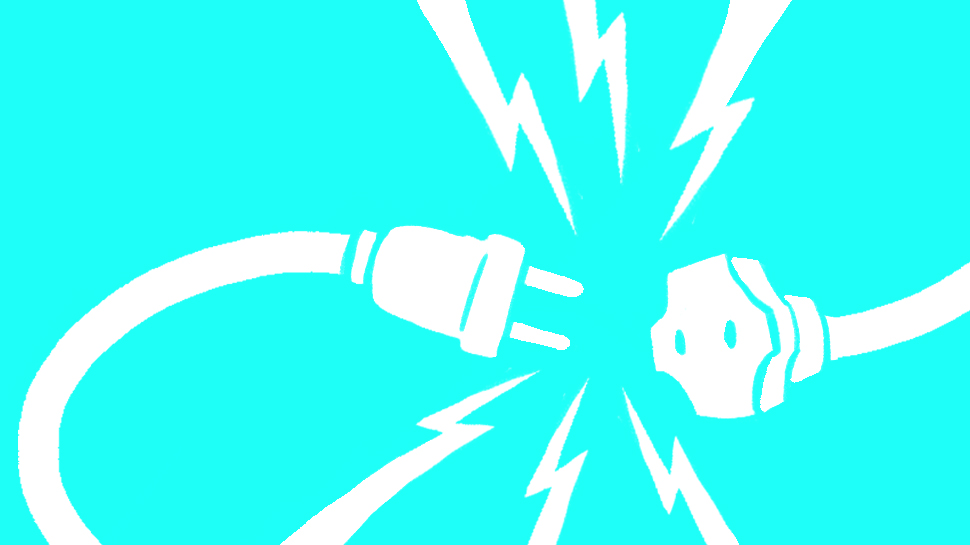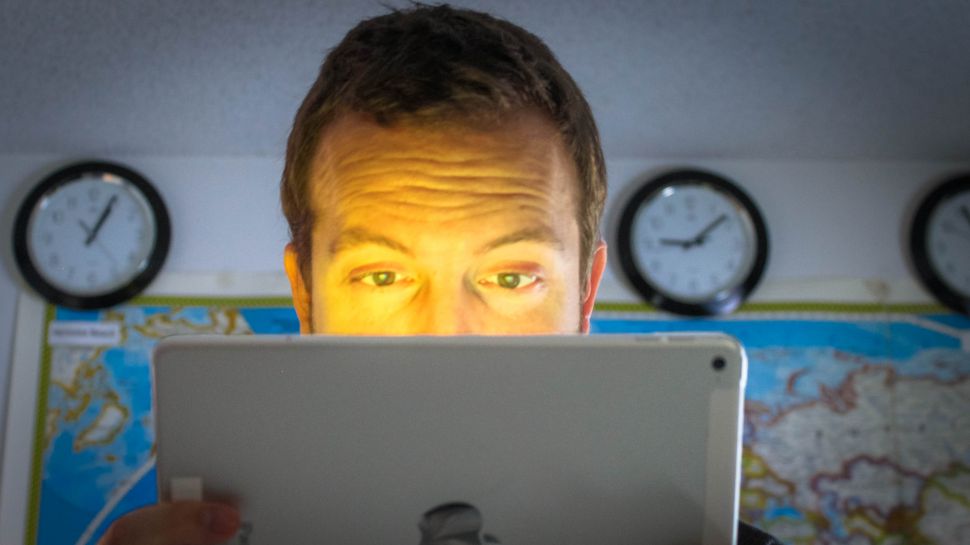Tech a break: why ditching my gadgets will help me love them again
Disconnected: it’s not you, it’s me

Technology is everywhere. You can’t escape it.
OK, you can escape it, but try functioning for an extended period of time in today’s world without a phone, tablet or laptop. Impossible, right?
If you’re like me, the first thing you do when you wake up in the morning and the last thing you do before you drift off to sleep at night is look at your phone.
I’m either checking email, reading news articles (or, if I’m honest, taking quizzes about what breed of dog I am), and scrolling through social media. At the very least, I’m setting and turning off my alarm.
My day starts and ends with a not-so-welcome reflex. Open eyes, reach for phone. Lull to sleep with that glowing slab dangling from my melting fingertips.
In between the day’s bookends, I’m on my laptop for 8-plus hours (often more), working. Once the laptop closes, the TV comes on, and it’s hours spent staring at a blaring box until bed, and the whole cycle resets itself.
- If you've got to be connected, why not use the best phone?

That’s not to say I don’t take my dogs for walks, or cook meals, or go to restaurants and interact with other human beings. But, even in those settings, my phone is almost always there. Whether it’s in my back pocket, strapped to my arm in an Incase holder or resting on the table at dinner, in closer range than the bread basket, I basically have my phone near or on my person 24/7.
Get daily insight, inspiration and deals in your inbox
Sign up for breaking news, reviews, opinion, top tech deals, and more.
There’s nothing inherently wrong with this or any other tech I interact with. There’s a lot of good these devices offer for me, and a lot of convenience. With my phone, I can pay bills with a few taps, stay in touch with friends and family through email, text and social media, and take photos. My laptop allows me to be almost anywhere and interact with coworkers, do research, write and publish a story.
Social media and the internet help me to know what’s happening in the world at any given moment. I can share parts of my life, talk about a cause I care about, be a part of a community, or simply chill, letting my brain zone out on pretty pictures and recipes and dumb quizzes.
Technology is useful and fun, and I wouldn’t be able to live the life I do without it.
Breaking point (or, A Walk With Merlin)
But what I’ve begun to resent without even realizing how I got there is that tug to tweet every passing thought, to post a photo on Instagram when I’m in the middle of a hike so I can gather a dozen hearts, to not be able to enjoy reading a book because I’m too used to scanning words quickly online. To incessantly pull out my phone when I’m bored or standing in line at the grocery store or at a gathering where I don’t know anyone. To feel I need to have chat open at all hours and check email often, usually at the chagrin of people I’m with and my own sense of well-being, so I’m not MIA if something major happens at work.
I resent not being able to be in the moment.
I used to sit with only my thoughts for what memory tells me was a really long time. Train rides where I’d look out the window and my mind would wander unencumbered. Novels that I savored every word of, hikes where I was completely connected with nature, where I felt at peace and in tune. Meaningful chats with strangers.
I don’t have those same abilities anymore, and while there are likely several reasons why, I know one of them is because I’m distracted – pulled away – by the technology I use. It’s just easier to stare at those screens than engage with the real world, and myself, sometimes.
Realizing this, I’ve recently taken up efforts to regain some of those abilities. A few months ago, I imposed a policy of not checking work email on the weekends, though I still slip when I’m feeling especially antsy. I leave my phone at home, some of the time, when I walk my dogs. I got a library card and read with a book marker, going line by line, so I don’t skim. It feels like I’m retraining my brain to read for pleasure, which I probably am.
All these little efforts culminated into the idea for this column, though actually I had every intention of writing about something else and hadn’t even formalized my own thinking around disconnecting from tech. It was just something I was doing, bit by bit, because life seemed to be passing me by, and I needed to do something to try to slow it down.
It was on a recent personal day off (another facet of Michelle’s Self-Help Journey To Enjoy Her Life), and I was walking one of my dogs, Merlin. My mind was as far away from work as possible when the idea to examine my relationship with tech and what would happen if I stepped away from it bubbled to the surface. The name actually came first, like it’d been there all along and just needed a moment of quiet to speak.

On a day when I’d taken a break from the daily grind, I was struck with an idea, one that truly energized and excited me. This was, in a very minor sense, a moment of inspiration. And, it happened while I was outside on an early summer afternoon, away from my phone and laptop, probably minutes removed from picking up dog poop. Kind of the perfect allegory, if you ask me.
Where do I go from here?
The idea of exploring what happens when we disconnect isn’t new. Between 2012 and 2013, Paul Miller chronicled his year spent without the internet in an excellent series for The Verge (read this piece if you haven’t yet). Miller didn’t become “the better Paul” he thought he would at the end of a year spent offline, but he learned some lessons, and I hope to do the same.
I don’t plan to stop using technology completely, but rather hope that by reexamining my relationship with my gadgets, social media and the internet, and by speaking with experts and chronicling the journey twice a month, I can learn to use technology more effectively and have a healthier relationship with it. Perhaps I can even learn to love it.
Topics I intend to explore include how my sleep is affected when I stop using devices before bed, what it’s like to go a day without my phone, how our communication, social interactions and relationships have changed with technology, whether I can become more productive by unplugging, how our relationship with tech changes as we age, and what being “connected” means in different parts of the world.
The questions I’m asking myself are: Can I have a better relationship with technology by spending meaningful time away from it? Can I use tech more effectively when I take a breather now and then? And, can I ultimately regain a sense of living in the moment, free from the pull of devices and the next post?
Maybe I’m naive (Miller’s final piece offers fair warning on this front, so, probably), but I’m hopeful.
This is going to sound incredibly cheesy, but a few weekends ago I watched motivational speaker Tony Robbins’ documentary on Netflix. Something he said in the film stuck with me: “Life is always happening for us, not to us.”
Robbins has a lesson in the phrase as it relates to learning from life’s difficulties, but I’ve taken my own meaning: Life is happening for me, all the time, and I want to use every second I have to embrace it.
And, yes, that means putting down my damn phone.
- Disconnected is a bi-monthly column examining my relationship with technology and what happens when I take a break from it, for a little or a while. I’ll explore ways to disconnect, talk with experts and try to find ways to use technology more effectively when I reconnect. Have a comment or question? Hit me up on Twitter @fresh_fitz.
Michelle was previously a news editor at TechRadar, leading consumer tech news and reviews. Michelle is now a Content Strategist at Facebook. A versatile, highly effective content writer and skilled editor with a keen eye for detail, Michelle is a collaborative problem solver and covered everything from smartwatches and microprocessors to VR and self-driving cars.
